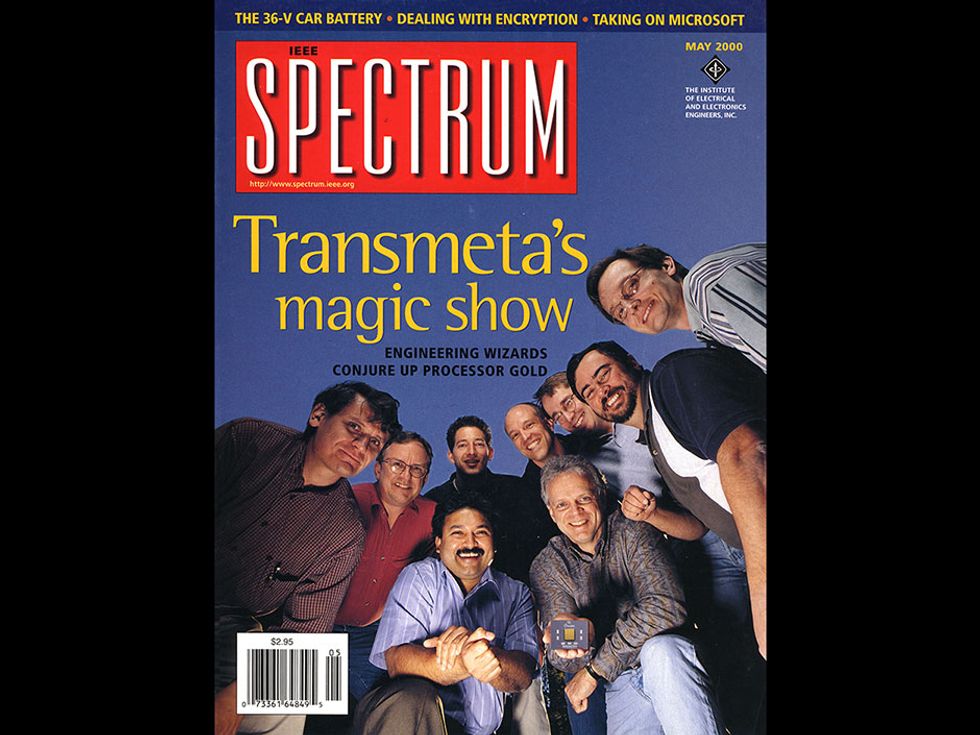Crusoe Processor
Manufacturer: Transmeta Corp.
Category: Processors
Year: 2000
With great power come great heat sinks. And short battery life. And crazy electricity consumption. Hence Transmeta’s goal of designing a low-power processor that’d put those hogs offered by Intel and AMD to shame. The plan: Software would translate x86 instructions on the fly into Crusoe’s own machine code, whose higher level of parallelism would save time and power. It was hyped as the greatest thing since sliced silicon, and for a while, it was. “Engineering wizards conjure up processor gold” was how IEEE Spectrum’s May 2000 cover put it. Crusoe and its successor, Efficeon, “proved that dynamic binary translation was commercially viable,” says David Ditzel, Transmeta’s cofounder, now at Esperanto Technologies. Unfortunately, he adds, the chips arrived several years before the market for low-power computers took off, and appeared in only a few products. In the end, while Transmeta did not deliver on its commercial promise, it did point the way toward a world in which a processor’s power use was as important as its raw power, and some of Transmeta’s technology found its way into Intel, AMD, and Nvidia chips.




